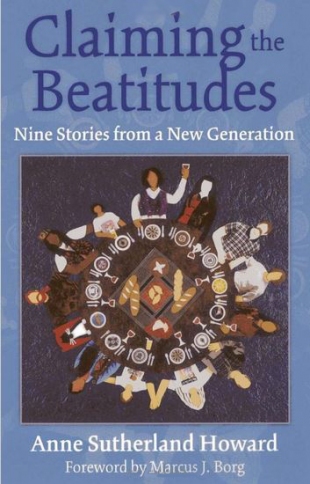"Kent's own response to God's invitation to transformation is based on the life of Jesus. 'The place for me to start and end is Jesus. I want to translate creatively from the first century to our own, to take practical steps. What did Jesus do?'
"In answer to this, Kent has compiled 'The Top Fourteen Spiritual-Political Practices of Jesus,' a list that in includes prophetic actions (that he names as street theater, civil disobedience, and social activism such as the donkey ride into Jerusalem, overturning temple tables, and breaking Sabbath laws); subversive storytelling of parables that turned the world upside-down and redefined 'reality'; feeding the hungry; forgiving debts; sharing wealth; eating with outcasts; being a 'radical feminist' of the first century by befriending and advocating for women and children and by empowering the Samaritan woman to be the first evangelist and Mary Magdalene to be the first apostle; and contemplative prayer.
"Kent's translation of Jesus' 'spiritual-political practices' ranges from local food to barrier-breaking interfaith dialogue. 'I'm interested in grassroots peacemaking, in the practical things we can do: simple living, local food, microcredit banks, not being car dependent, crossing barriers, talking with folks from other religious traditions. Peacemaking is not just about war versus peace, it pervades every choice we make, every conversation we might have.'
"The steps to peacemaking may be grassroots but they cannot be limited to individuals. They are something for the community to participate in, Kent says, something for local churches to place at the center of their worship life. 'Peacemaking is not optional, not a secondary program for the church. It's about cooperating in a sustainable way in this age of ecological meltdown. The fundamental task for our generation is to draw on the peacemaking tradition of the Bible and transform the way we live.' "
